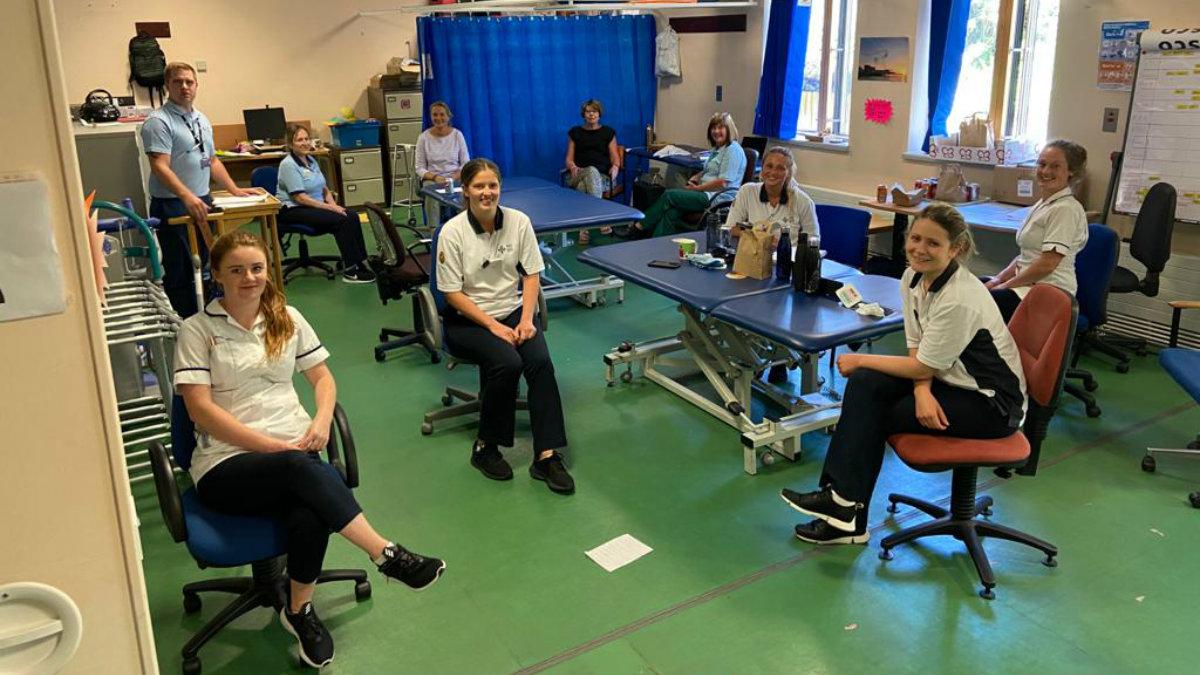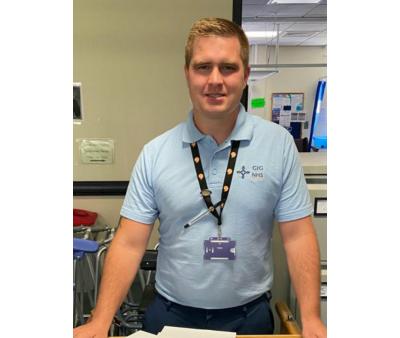While there is now a sense of bringing teams ‘back to normal’, support workers have been reflecting on their varied roles and initiatives locally since the coronavirus crisis hit in March.

Two members of the CSP associate member Support Worker Reference Group (SWRG) have been self-isolating after colleagues received Covid-19 positive results. Others launched ‘wellbeing’ projects to help team members.
June’s Frontline featured Steve Robertson who played a pivotal role in supporting new and redeployed colleagues at East Surrey Hospital.
Responding to the article, a member commented on the CSP website: ‘What a great article about Steve and his fellow support workers explaining their valued input using their skills and knowledge in a situation of the unknown as the pandemic hit, but not only that supporting physiotherapists who had been redeployed to settle into a strange environment ensuring that their input was maximised.
‘This to me highlights the impact that associate members have when their skills and knowledge are used to their full capacity.’
We ask some of our SWRG to tell us what has been happening locally:
North Wales
‘I feel we have reached our peak here in north Wales with Covid-19 slightly later than the majority of the UK,’ said Polly Hornby, a physiotherapy assistant at Betsi Cadwaladr University Health Board.
She was redeployed to work in the main hospital site. ‘This has led to changes in working hours and days and the increased opportunity to meet and work with different staff.
‘There have been some positives for me. I have been fortunate to receive and take part in more in-service training than perhaps i would normally. This has improved my knowledge of areas I do not normally work in. I have also had great support from the stroke therapy team I work in and feel we have come out stronger as a result.
‘The negatives though have been missing my lovely team in the community hospital I was redeployed from. I worked closely with both qualified staff with other assistants here for a number of years and I miss them.
‘I am the only therapy assistant currently on the stroke ward, which can be tough and a little lonely - although my qualified colleagues are lovely! I have also sometimes felt that assistants were a bit of an after-thought when it came to planning working rotas and mask fitting, for example, however these issues were dealt with when raised.
West Midlands
‘It has been very different for us in the children’s hospital compared to adults,’ said Steve Huckstep, therapy assistant practitioner (major trauma) at Birmingham Children’s Hospital.
‘Our assistant team has been split into two – both working from home for one half of the week, and covering the essentials in the hospital for the other half.
‘It has meant we are all doing less clinical work, more departmental and infection control work, and very much used generically within the department.
‘Normally we are all assigned to different clinical teams. It has been difficult at times not seeing the other side of the team in person but we do catch up regularly over Zoom meetings.
‘We also have had quite a few team quiz nights on Zoom to keep spirits up.
‘Support workers have been reassigned to work as care support workers on wards, and so were doing very minimal therapy work at all.’
Mid Wales
Wellbeing sessions for staff under pressure at the start of the Covid crisis were initiated by Chris Richards, a physiotherapy technical instructor at Hywel DDA University Health Board.
‘At the beginning of this when we were expecting chaos I had to move away from the family home and my children for five weeks.
‘That was quite tough and emotionally draining.
‘The support was amazing from the team I was with. All of us were dealing with some anxieties, the unknown.’

In order to help support physiotherapy, occupational therapy and admin team members, Chris launched ‘wellbeing’ sessions at lunch times in the physio gym.
At the Christmas party he’d organised a quiz, so he came up with a ten-minute mini quiz, ‘to take their mind away from it and have a bit of fun.
‘We try and mix it up with different games and people do enjoy it.’
Chris said that colleagues have come to him with other ideas such as cryptic clues, and he’s been in touch with mental health charity MIND.
‘We’re all in pretty crazy times at the moment, it’s trying to look out for each other, to recognise if anyone is having a tough time.’
North east England
Robert Minter, physiotherapy assistant, Hull University Teaching Hospitals at Hull Royal Infirmary, said: ‘I work in the physiotherapy outpatients department in a role that I have been in for five years.
'During this time my title has not changed but my role has changed many times especially now with the Covid-19 pandemic.
‘In our outpatients department, my colleague and I are now having a telephone triage clinic this is to help the waiting lists for rheumatology to ease the pressure on physiotherapists and ensure patients do not think we have forgotten about them.’
Number of subscribers: 1



































